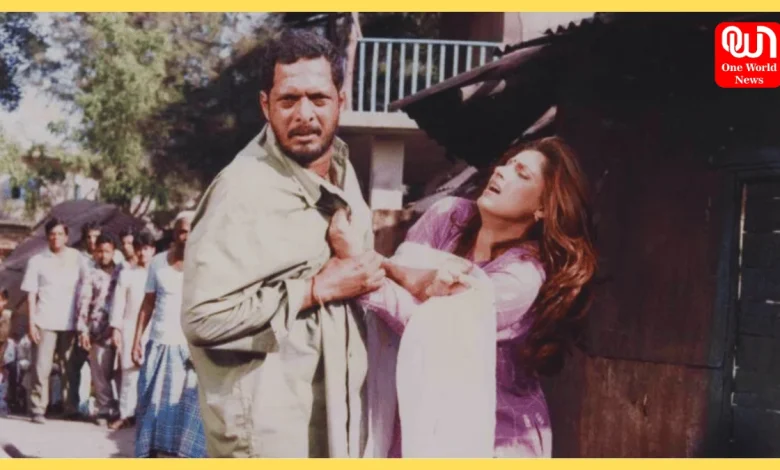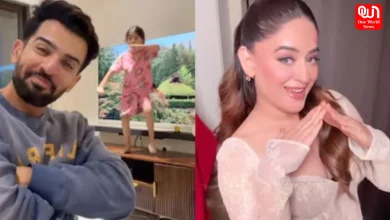Krantiveer Turns 30: How Nana Patekar’s Sarcastic Take on Hero Worship and Social Injustice Defines This 90s Classic
Krantiveer turns 30, showcasing Nana Patekar’s biting satire on hero worship. Patekar’s Pratap Narayan Tilak challenges injustice with raw, cynical humor.

Krantiveer at 30: Nana Patekar’s Masterful Satire on Hero Worship and Corruption in 90s Bollywood
Even as Krantiveer reaches the three decades of its existence, it remains a perfect example of what can be termed as 1990s cinema. The film kicks off with a classic setup: a desperate woman scantily clad worried about her husband smoking; two elderly people concerned about their teenage grandson smoking and gambling. These opening lines like ‘Agar tune apni maa ka dudh piya hai toh iss ghar mein vapas maat aana,’ this dialogue is completely typical with the films of 90s time. It is important to remember that in the 1990’s, the standard model of assistance regarding negative attitudes towards troubled youth did not include counseling because it was not popular during that period.
Like all New Indian cinema of the 1980s and the early 90s, Krantiveer is not averse to clichés of the time such as a compulsory rape sequence and villainous dialogue, especially from firebrand journalist Megha Dixit played by Dimple Kapadia. There is also a drama of a girl who leaves her evil father, a millionaire, for a poor man with elements of dance and chorus included. These elements together form the 90s film pattern that has has received considerable recognition over the years.
While the movie might be conventionally formatted, Krantiveer is a film that can still shock, albeit for the most part through Nana Patekar’s portrayal of Pratap Narayan Tilak. Patekar cuts the character adrift from home in his early age and he became the Local Goon working for chawl owner Laxmidas Dhayal, played by Paresh Rawal. Born a genuinely poor person, Pratap knows how the corrupt system treats the lower class deprived of even basic human rights. Rather than confront the corrupt elite physically, Pratap merely asks for more money for his wife with a skeptical laugh, suggesting that the impoverished are simply doomed to wit and or misfortune. It is possible that this attitude is an outcome of the strict raising Casagrande had a hard childhood.
It is interesting to notice that Megha always wants Pratap to stand against corrupt politicians, and he simply responds by telling her to ‘Go suck’. Thus the author succeeds in depicting Pratap as a hero who is free from the well-known ‘messiah syndrome,’ which still persists in the minds of contemporaries and modern readers. Perhaps, one of the memorable scenes in the movie portrays when Pratap feels very annoyed with Megha and her revolutionary spirit, he jokingly captures her and sends her away from the table so that he can eat in peace manner.
This is not ignorance, but a warfare on injustice where he helps the oppressed fight for themselves without even having to resort to the clichéd sermons. Ongoing political corruption Many audiences may remember the moment when Pratap faces an angry mob instigated by a group ofpoliticians and builders. Sedate and with a commanding penetration, he asserts and questions them back vehemently, “Yeh khoon Musalman ka hai ya Hindu ka – bataa, yeh Musalman ka kaunsa Hindu ka kaunsa?”
Finally, in the concluding scene of the film, Pratap transforms into a vigilante self-parodied through Patekar’s scornful style. Instead of inspiring people and stirring up the crowd, he speaks ill of getting people patronized, making them oblivious of their suffering and apathy to surfering injustice. This is a punch which presents violent earnestness which every scrap of reality.
We’re now on WhatsApp. Click to join.
When Krantiveer made its debut in the summer of 1994 amidst the furore caused by the 1993 Mumbai riots, its theme and its protagonist Pratap played by Nana Patekar was relevant to the audience. Devi’s portrayal of Pratap thus proves to be a breath of fresh air in a time when cinema celebrates the messiah like characters who alone build the nation and win wars.
Like this post?
Register at One World News to never miss out on videos, celeb interviews, and best reads.







